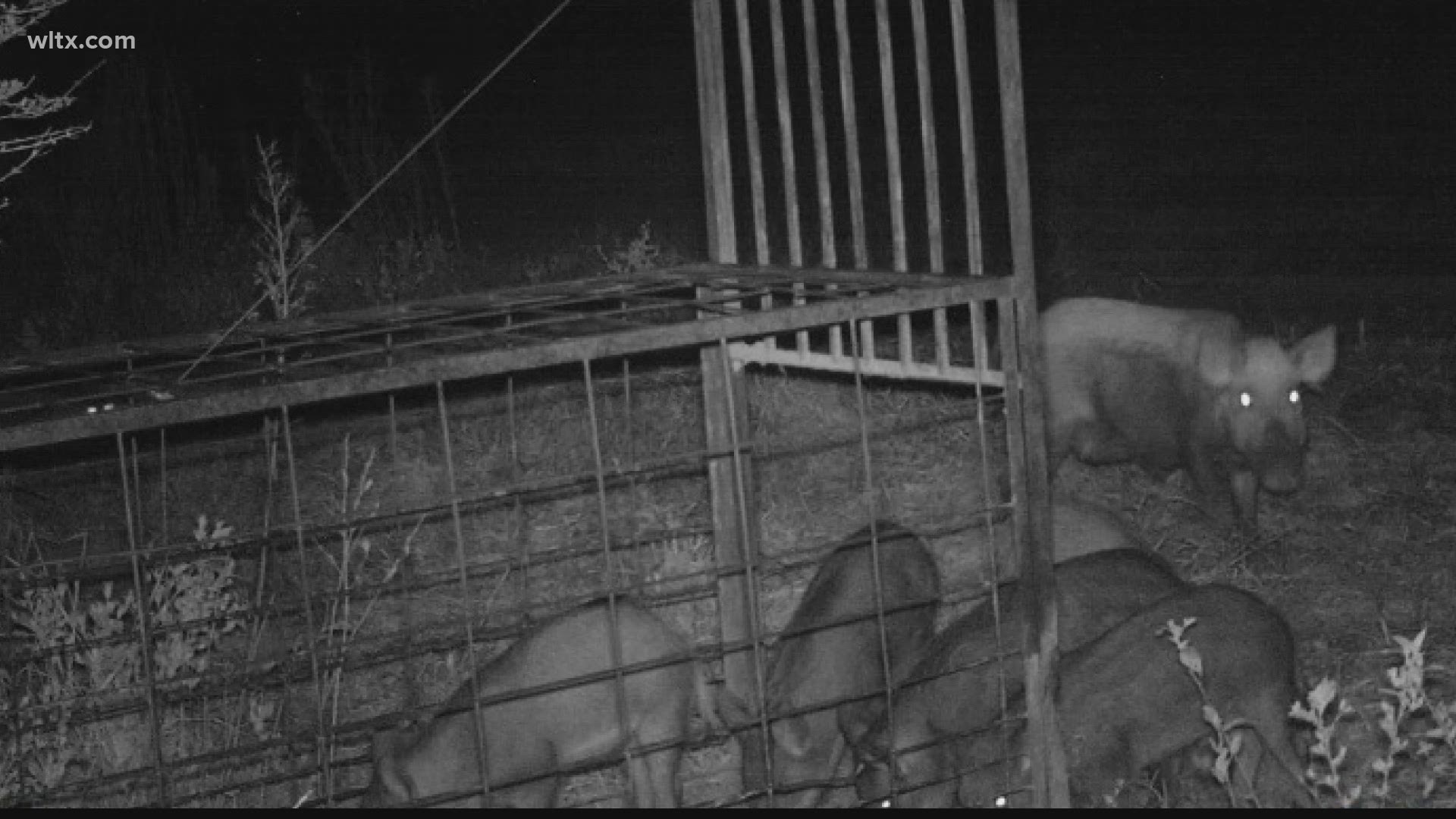ALLENDALE, S.C. — On Tuesday, a Columbia woman reported feral hogs in her yard in the middle of the night. Since then, multiple South Carolinians have shared their recent experience with the increasing number of feral hogs.
Feral hogs can be destructive to personal property and to natural wildlife. Officials with the SC Department of Natural Resources (SCDNR) said reports of feral hogs are in every county in the Palmetto State.
One group of people being impacted are farmers, like Rachael Sharp.
"We lost 224 acres of corn to feral hogs," Sharp said. "They get in your fields, they root up the fields, they ruin pretty much anything they come into contact with."
Rachael Sharp is a farmer in Allendale, SC. She said her father has been a farmer for over 50 years. Sharp said she and her father have watched the feral hog population worsen in the state.
"My dad has been doing this for over 50 years, and he said that he’s always seen a hog or two around," Sharp said. "But over the past 10 years, they have just really spread. I’ve been back on the farm for about 5 years now, and I can see it progressively getting worse, year after year."
Sharp said the hogs come and go, and no one knows when they will return to the farm.
"They will usually stay for a month of two, maybe three and then they'll go for a while," Sharp said. "Then they'll come back. You'll never really know when you're going to get hit by them."
She said this has negatively impacted income from their crops.
"We're losing money, not to mention the problems it causes with the land," Sharp said. "They really get in there and do some major damage. It's not a good thing, and they're hard to get rid of. They can breed up to three times a year with litters up to 10, so a lot of pigs running around the farm."
On Tuesday, News 19 shared a story about a Columbia woman who reported seeing six feral hogs in her yard between the hours of 3:00 a.m. and 4:00 a.m.
"I was scared! I didn’t know what they were," said Columbia homeowner Herbilean Dunwoody. "‘Well, where did it come from? Why are they in my yard?’"
Dunwoody said they hogs came to her yard on June 8th and again on June 26.
Sharp said on the farm, they would see nearly 30 hogs in one night or none on other nights.
"We’ve tried a little bit of everything to get rid of these things," Sharp said. "What works best for us down there is, we hunt them pretty hard."
Sharp said they catch hogs from all sizes, from runts to as big as 250 pounds, eating all their crops and destroying their farmland.
"We're over run by them. They're definitely an invasive species, more of a nuisance," Sharp said. "It’s basically taking money out of a farmers wallet. It’s something that definitely needs to be on everybody’s radar. I know it’s not just happening in Allendale. It’s in all the counties in South Carolina."
According to the Department of Natural Resources, the wild hog population has grown so large, residents are allowed to hunt them year round.
“There is no closed season," said Charles Ruth, Big Game Coordinator for the South Carolina Department of Natural Resources. "There is no bag limit on wild pigs. In other words, you can hunt them all year long."
Ruth said shooting hogs will only get rid of a few hogs and isn't the best option to prevent them.
Justin Ludy, CEO and Owner of Palmetto Wildlife Extractors, said trapping them is the best option.
“Running dogs and shooting at them, that’s just really deterring them. That just pushes them away and then they come back," Ludy said. "The only solution that I recommend, from a professional standard, is trapping. Conditioning them, trapping them, targeting at least 75% of the group is really the only way to notice a difference."

